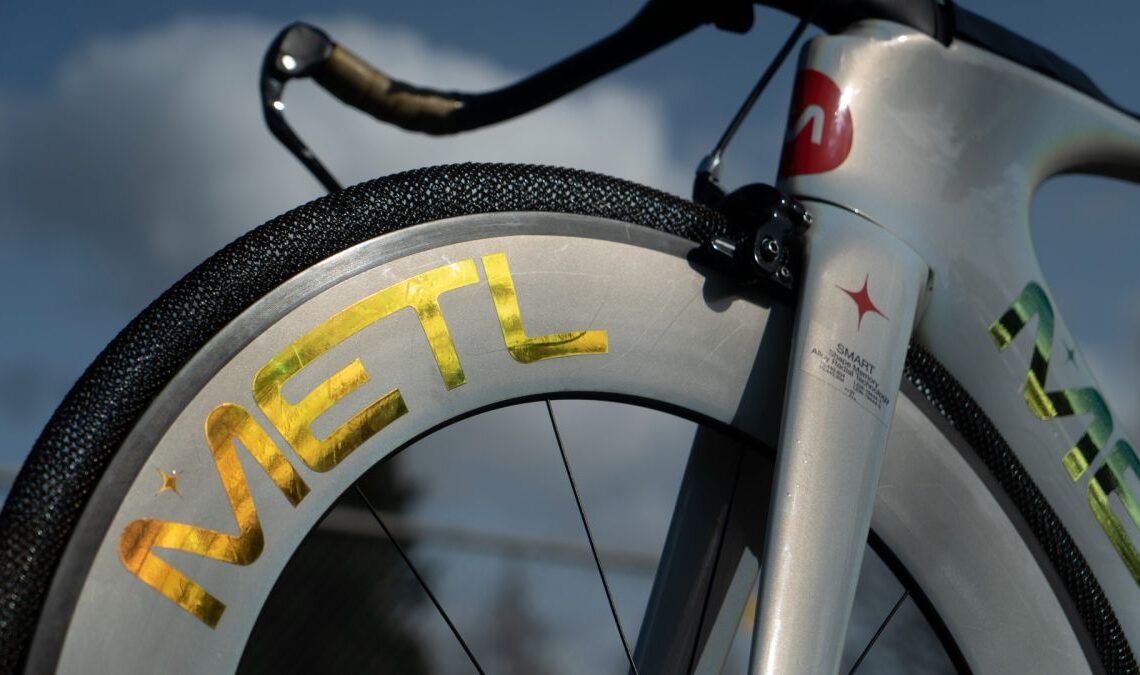A NASA-affiliated company set up to develop a new category of tyre could be one small step closer to a giant leap for the future of transportation.
The SMART Tire Company (opens in new tab) was formed with the aim of commercialising an airless alloy tyre called METL (Martensite Elasticized Tubular Loading) that was originally invented for space exploration. SMART is an acronym for Shape Memory Alloy Radial Technology.
After seven years of development at the NASA Glenn Laboratory, the company says it is expecting to launch its first METL tyre in Q2 of 2023.
(Image credit: SMART Tire Company)
“Starting with the extreme capabilities of this Mars-grade technology, we’ve developed new, patented tyres designed for cycling, automotive, trucking and aerospace applications,” the US brand claims.
SMART’s approach appears to be the polar opposite of existing puncture-proof tyre manufacturers such as Tannus (opens in new tab), whose solid tyres are made of a micro closed cell polymer resin (MCP) manipulated to make a solid foam-like material.
The innovation by the NASA Glenn Research Center comprises a “non-pneumatic, compliant tyre utilizing shape memory alloys (mainly nickel-titanium alloy NiTinol) as load bearing components.”
Shape memory alloys deform and then spring back to their original shape. The science says they are capable of undergoing “phase transitions at the molecular level with significant reversible strain (up to 10%), an order of magnitude more than ordinary materials, before undergoing permanent deformation.”
(Image credit: SMART Tire Company)
Commonly used elastic-plastic materials such as spring steels and composites can only be subjected to strains of around 0.3-0.5% before suffering plastic deformation, according to SMART.
Which means the use of a nickel-titanium shape memory alloy ought to produce a tyre that is elastic like rubber yet strong like titanium – and obviously doesn’t need air and therefore can’t flat.
SMART claims the use of memory metals provides enhanced control over the effective stiffness as a function of the deformation, giving increased design versatility. For instance, it says, the tyre can be made to soften with increased deflection, reducing the amount of energy transferred to the vehicle or bicycle during high deformation events.
The company says the final product will be integrated with “a special poly-rubber material for the longest-lasting tread and grip for all weather conditions.”
Although the tyre…

